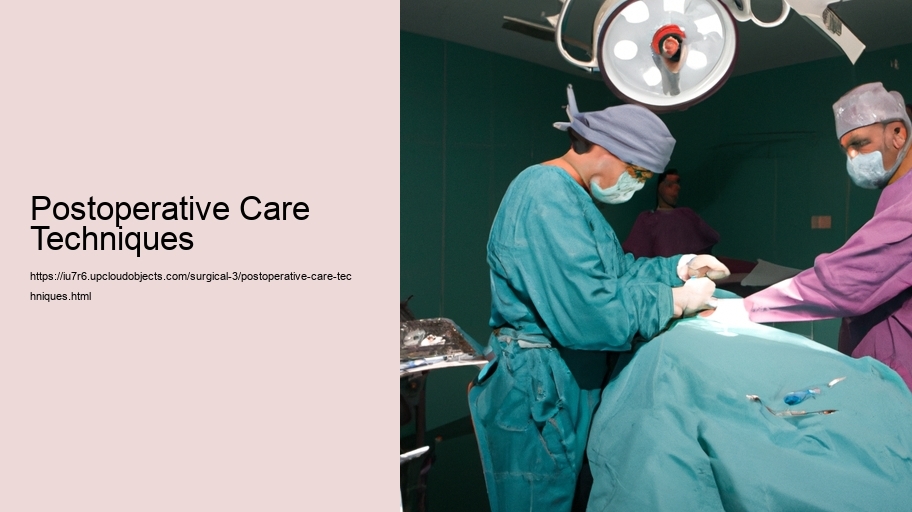Postoperative care techniques encompass a wide range of procedures and practices that are crucial for ensuring the successful recovery of patients following surgery. The primary goal of postoperative care is to prevent complications such as infections, promote healing of the surgical site, and aid the patient's return to normal activities. This essay aims to explore various aspects of postoperative care, highlighting the importance of each technique in the patient's recovery journey.
The first step in postoperative care begins even before the surgery takes place, with preoperative education. Educating patients about what to expect post-surgery can significantly reduce anxiety and improve compliance with postoperative instructions. Patients should be informed about pain management, the importance of mobility, wound care, and any specific instructions related to their surgery.
Immediately following surgery, patients are typically taken to a post-anesthesia care unit (PACU), where they are closely monitored until they recover from anesthesia. Vital signs such as blood pressure, heart rate, and oxygen saturation are watched vigilantly to detect any early signs of complications. Pain management is also a critical component of care in the PACU. Effective pain control not only ensures patient comfort but also facilitates early mobilization, which is key to preventing blood clots and respiratory complications.
Once stable, patients are transferred to a hospital room or ward where postoperative care continues. Here, health care professionals, including nurses and physiotherapists, play pivotal roles. Nurses are responsible for monitoring vital signs, managing pain, administering medications, and assessing the surgical site for signs of infection or improper healing. They also provide guidance on deep breathing exercises and coughing techniques that help prevent pneumonia.
Mobility is encouraged as soon as it is safe to do so. Early ambulation, with assistance if necessary, is vital for improving circulation, enhancing lung function, and promoting bowel movement. Physiotherapists often guide patients through exercises that are tailored to their specific surgical procedure, ensuring that movements are safe and beneficial.
Nutrition is another cornerstone of postoperative care. A balanced diet rich in proteins, vitamins, and minerals supports wound healing and provides the energy needed for recovery. In some cases, dietary supplements may be recommended to meet the increased nutritional demands of the body post-surgery.
Wound care is also a critical aspect of postoperative care. Proper wound care can prevent infection and ensure optimal healing. Patients and caregivers should be educated about how to care for the wound, including cleaning and dressing changes, as well as signs of infection to watch for, such as redness, swelling, or discharge.
Follow-up appointments with the surgeon are an essential part of the postoperative period. These appointments allow the medical team to assess the healing process, address any concerns, and adjust treatment plans if necessary. It is also an opportunity for patients to discuss any issues they may be experiencing, such as persistent pain or mobility challenges.
Moreover, emotional support cannot be understated. Surgery can be a stressful experience, and emotional well-being is just as important as physical health in recovery. Healthcare providers should offer empathy and understanding, and where needed, refer patients to counseling services or support groups.
In conclusion, postoperative care techniques are integral to a patient's recovery following surgery. From pain management and mobility to nutrition and wound care, each aspect of postoperative care plays a vital role in preventing complications, promoting healing, and ensuring the overall well-being of the patient. By understanding and implementing comprehensive postoperative care strategies, healthcare professionals can greatly enhance patient outcomes and support a swift return to everyday life.
